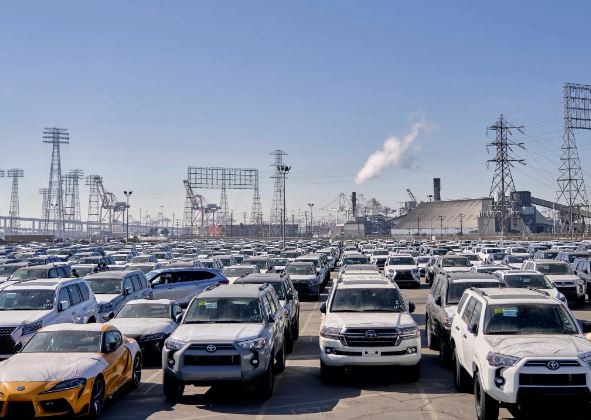Toyota, the world’s largest automaker, has ceased global shipments of 10 vehicle models after uncovering testing irregularities related to diesel engines conducted by one of its affiliates. This revelation marks yet another setback for the automotive giant in recent months.
According to Toyota’s statement, an affiliate employed software during testing to measure horsepower output, resulting in artificially smoothed values with less variation. While the vehicles in question still meet engine output standards, Toyota decided to halt shipments of the affected models as a precautionary measure. Among the temporarily suspended models are the popular Hilux pickup truck and the Land Cruiser 300 SUV, although the company did not disclose the exact number of affected vehicles.
This development comes on the heels of a challenging period for Toyota, characterized by recalls and production disruptions. In December, the company issued a recall of approximately 1 million vehicles in the United States due to airbag-related issues. Additionally, Japan’s government launched an investigation into Daihatsu, a Toyota subsidiary, regarding safety concerns spanning several decades.
Following Daihatsu’s announcement of halting shipments of all its models due to safety inspection irregularities, Toyota faced further challenges. Last week, Daihatsu revealed a recall of 320,000 vehicles and indicated that its production facilities remained closed pending resolution.
Acknowledging the severity of the consecutive testing issues, Toyota expressed its understanding of the significant impact on the company’s reputation as an automotive manufacturer. This sequence of events underscores the profound challenges confronting Japanese auto companies, which have historically been dominant players in the global automotive industry since the 1980s.
Toyota’s struggles reflect broader shifts in consumer preferences and regulatory landscapes. Despite its pioneering efficiency in automotive manufacturing during the 1970s, Toyota has encountered difficulties adapting to changing consumer demands and governmental efforts worldwide to reduce fossil fuel consumption, a key contributor to climate change. Notably, China surpassed Japan as the world’s largest car exporter last year, signaling a significant shift in the automotive landscape.
As Toyota navigates these challenges, restoring consumer confidence and addressing internal testing and production issues will be paramount. The company’s reputation for quality and reliability, cultivated over decades, hangs in the balance as it works to regain its footing amidst these setbacks. Additionally, Toyota’s response to these crises will likely shape its future trajectory in an increasingly competitive and dynamic global automotive market.

